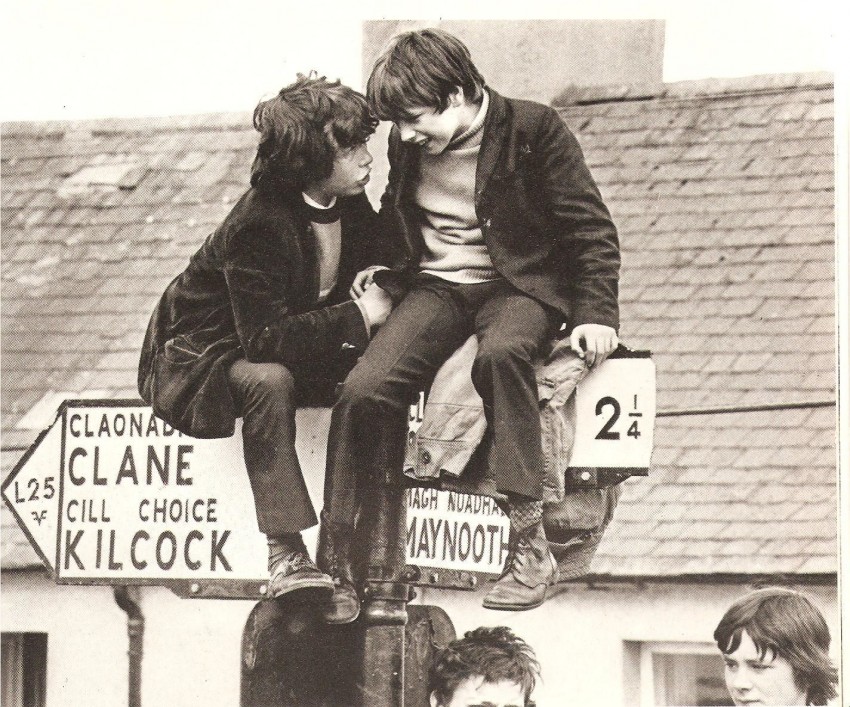Fionn Rogan | Deputy Opinion Editor
I’m an Irish man. Twenty years old. But am I an Irishman? By simply omitting that space between Irish and man one delves into what Brendan Behan would describe as, the psychosis of Irishness. An Irish man is a modern creature who uses the word Irish merely as a classification tool. The word is stripped of its mythologies and becomes a clinical and simple geographical term like German or Sudanese. In a sense, Irish is dispossessed of its Irishness. Two distinct classes of Irishness are created.
The distinction between the two becomes more intriguing when it’s viewed from a more youthful perspective. To be Irish or to subscribe to any sort of exclusive idea of nationality will soon be an outdated concept. As society becomes increasingly multicultural nationality as a concept becomes obsolete. A large spectrum of young Irish people along with other young people from across the world are denizens of an Internet age. They subscribe to a homogenous and pervasive culture that exists without nationality. To be Irish, British or American on the Internet is defunct because for the most part there is no fundamental difference between our cultures. The idiosyncrasies that defined us waste away as we all ‘lol’ at Jennifer Lawrence and Benedict Cumberbatch making ‘Doge’ references. It has a certain vapid but peaceful harmony to it. To be Irish becomes a passive description and to a certain extent nationality is renounced in favour of joining this global network of people.
Nationality is a segregating device
The fallacy of Irishness becomes glaringly apparent in this set-up. This unnerves me. It upsets me because I’ve grown accustomed to an outdated model that I use to identify myself. I consider myself an Irishman but what does that mean? Am I being exclusionary when I identify myself as such? Of course I am. Is that defensible? No, it isn’t because when I do so I am describing myself as Irish in a bid to distinguish myself from those of other nationalities. I am not English because I am Irish. By making that distinction I’m inferring that to be Irish is in some way superior to being English, which is plain, illogical racism. Nationality is a segregating device. However by this logic any demonstration of national pride becomes an inherently racist exhibition, which is an extreme notion. Therefore can national pride be considered the one example of defensible, or at least, acceptable racism? Is being proud to be Irish an admission to being a benign racist, or is that an oxymoron?
Perhaps a means of tackling this is to ask is there a role for the Irish in a globalised world? What does it mean to be Irish or even young and Irish in the 21st Century? I can only speak for my own sense of Irishness, which is an ideologically conflicted minefield of contradictions. It reflects the variety that exists in contemporary Irish thought. I plan on living in London when I’m older yet I refuse to learn any of England’s geography because I maintain an immature animosity towards our former colonisers that has been engendered within me since primary school. I relish in the inoffensive mischief that defines the Irish. I decry the fecklessness of the Irish and in the same breath eulogize the numerous achievements of my country folk. I hail from Kildare, live in Dublin, pretend to be urbane and know that a year cannot be spent without at least one visit to the West because it’s good for the spirit. I’m a twenty-six county nationalist whose misguided patriotism was founded primarily upon Neil Jordan’s hopelessly inaccurate Michael Collins. I champion the local but abhor the incestuous and prying nature of parish-pump politics. I wish I spoke Irish and liked the GAA. I enjoy the informality of the Irish. I appreciate that we will always have an issue with accountability. I don’t scoff when someone waxes lyrical about the Irish landscape flowing through their veins, because I know it does the same for me, three-bed semi-d’s and all. I’m obsessed with my Irishness.
Globalisation requires its subjects to renounce the idiosyncratic identity that defines them so as to subscribe to a culture where everyone is one of the same
To be Irish is to be constantly at odds with yourself and others and still feel completely intact. There’s a schizoid element to our distinctly Irish psychosis. However is there room for our contrary national identity? Truthfully I don’t believe there is. To be Irish is to be directly opposed to globalisation. To be any nationality is. As a process globalisation requires its subjects to renounce the idiosyncratic identity that defines them so as to subscribe to a culture where everyone is one of the same. Nationality is a fallacy. It must be surrendered in order to achieve global harmony and peace through homogeneity.
World Peace is at stake and yet the notion of sacrificing my Irishness is too much for me. I know I never could. I’m an Irishman. Twenty years old. Who knows what he should do but doesn’t.







